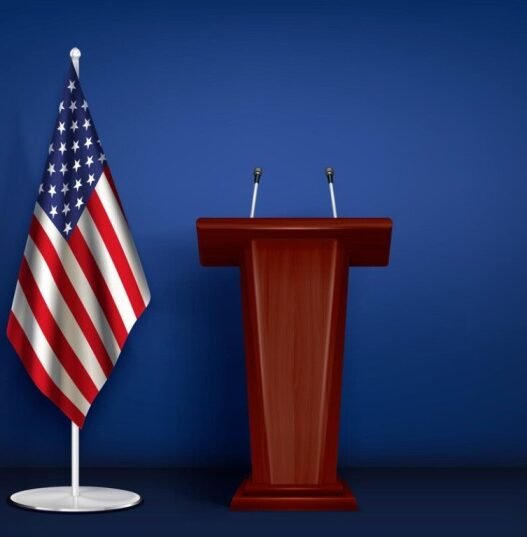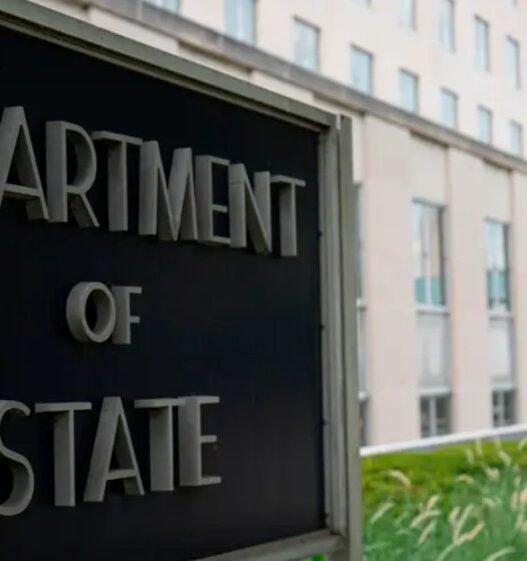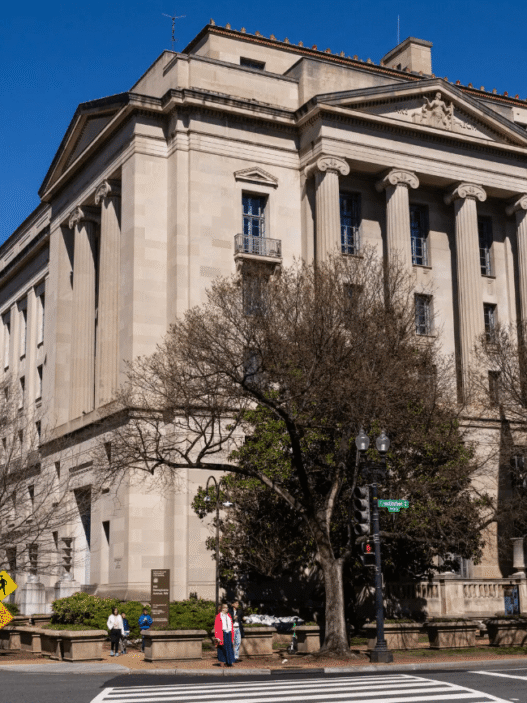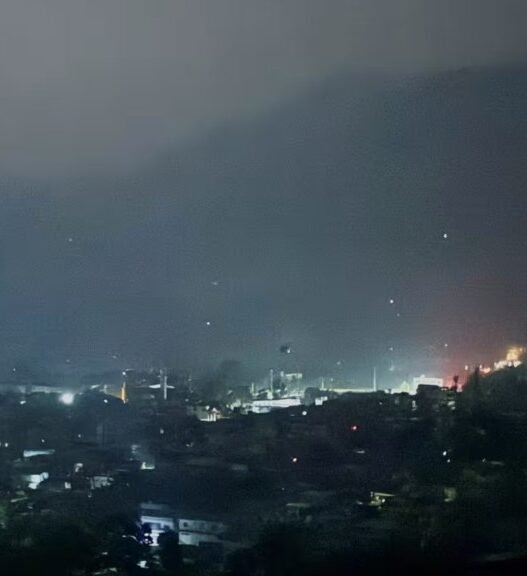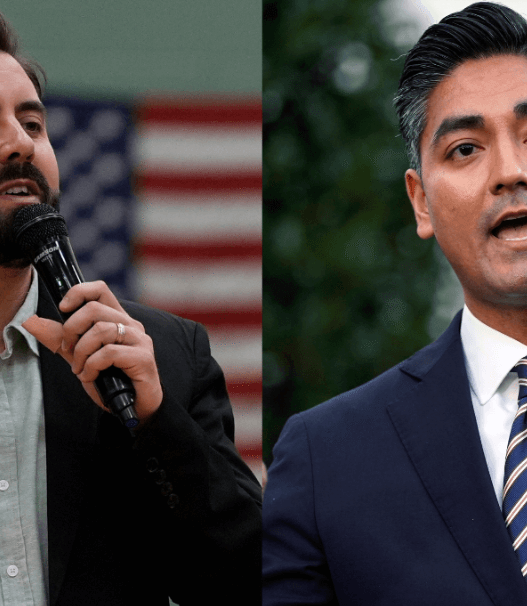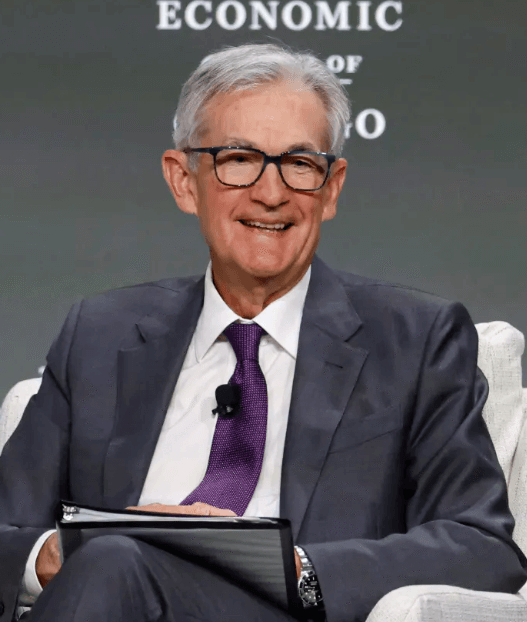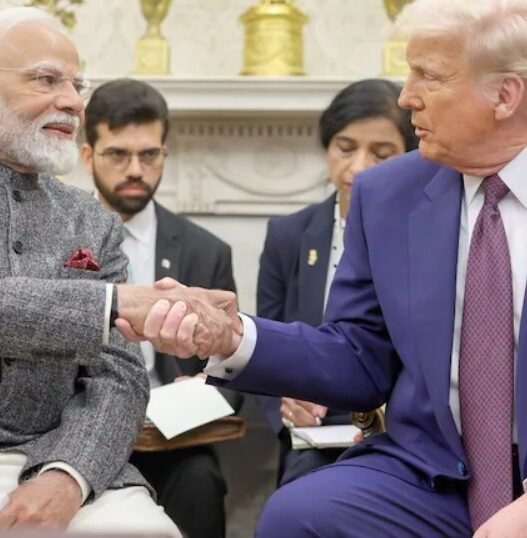US President Donald Trump recently expressed confidence that India and Pakistan, two countries with which he has strong relationships, will eventually resolve their ongoing border tensions. Trump made the statement while aboard Air Force One on Friday, responding to a question about the rising tension between the two nuclear-armed neighbors following a terrorist attack on tourists in Pahalgam, India-held Kashmir, which resulted in the deaths of 26 civilians.
India, pointing the finger at Pakistan for the attack, retaliated by implementing a series of diplomatic measures. These included reducing diplomatic staff at the Pakistani mission in New Delhi, expelling military attachés, canceling visas for Pakistani nationals, and suspending the Indus Waters Treaty — a key agreement that has withstood several previous conflicts between the two nations.
In response, Pakistan also reduced its diplomatic staff in India, canceled visas, and threatened to suspend bilateral agreements, including the Simla Agreement from the aftermath of the 1971 war. The situation is further complicated by the lack of a dialogue mechanism between the two countries.
Trump’s comments suggested that the escalating diplomatic measures were a reaction to the Pahalgam incident and that, following a period of tension, de-escalation would likely occur. However, the mood in India, particularly within the media and military circles, indicated a more aggressive stance, with some speculating that the Indian government might pursue a military response against Pakistan.
Some Indian experts and former military officials have even suggested that India might target high-ranking Pakistani military or intelligence personnel, drawing controversial comparisons to Israeli military actions. This rhetoric has sparked concern, especially given the potential for further escalation between two nuclear-capable nations.
The situation is indeed volatile, but experts agree that the main value of nuclear deterrence is to prevent conventional war, particularly between two unevenly matched powers. While there are calls for more assertive actions, it is crucial to recognize the devastating potential consequences of escalating tensions into a full-scale conflict.
Prime Minister Shehbaz Sharif of Pakistan has offered to conduct an impartial and transparent investigation into the Pahalgam incident, hoping to defuse the situation and address India’s concerns. Some critics argue that this offer may be too little too late, pointing to the unresolved 2008 Mumbai attacks as a precedent. Nonetheless, Pakistan has taken significant steps in combatting militant groups and complying with international regulations on terror funding.
As tensions rise, the absence of a formal dialogue mechanism between India and Pakistan is a major concern. The situation remains fragile, but efforts by countries like Saudi Arabia and Iran to mediate could provide hope for a peaceful resolution.
In response to India’s accusations, Pakistan’s Foreign Secretary Amna Baloch has rejected the claims, calling them baseless and warning that India’s actions could destabilize regional peace. Interior Minister Mohsin Naqvi briefed President Asif Ali Zardari on the matter, emphasizing Pakistan’s resolve to defend its sovereignty.
The Trump remarks, which echoed the assessment of some Western diplomats in Islamabad, shared privately with journalists, seemed to suggest that this diplomatic tit-for-tat was all the fallout from the Pahalgam incident that was to be; and that, after a tense period, de-escalation would likely follow. But the mood in India, at least judging from the media, belied this assessment as it was belligerent and jingoistic. An array of recently retired senior military and intelligence officials all seemed convinced that the Modi government would not let the matter rest with the diplomatic measures but would surely plan a ‘kinetic’ operation to ‘punish’ Pakistan.
One Indian anchor on a mainstream channel asked a recently retired three-star general who commanded the corps in Kashmir if the kinetic action could include “eliminating some major or brigadier of the Pakistani military or its intelligence services who ordered the Pahalgam attack?”
The Modi government has often demonstrated the hold it enjoys over most of the country’s mass media and has social media handles, amplifying its view, running into millions. So, if it doesn’t wish the media to raise public expectations of ‘kinetic action to punish Pakistan including assassinations’ into becoming a self-fulfilling prophecy, it may consider dialling down some of the rhetoric that the public is feeding off.
It is prudent of Prime Minister Shehbaz Sharif to offer an ‘impartial and transparent’ probe into the Pahalgam incident so the Indian allegations of Pakistan’s role can be evaluated and discarded as not being legitimate or credible.
Some India peaceniks say this offer would not be seen as amounting to much at this time because it would have helped if Pakistan had taken its probe into the 2008 Mumbai attacks — which saw militants kill some 175 people and injure nearly 300 — to its logical conclusion but it did not.














